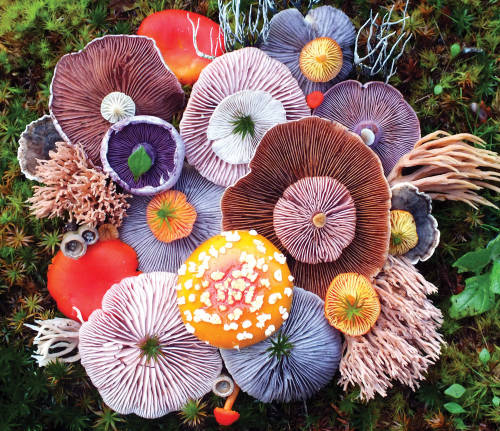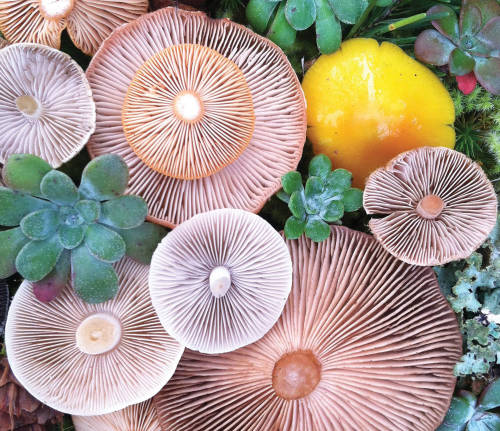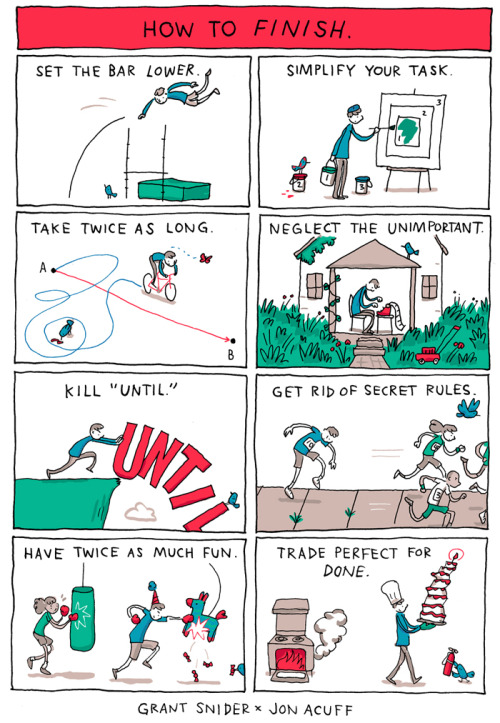Preparing For Your Exams

Preparing for your exams
Check whether you have anything you haven’t studied. If you do, list them out in a paper/document. Put them into three categories:
1. Things you are not familiar with at all (that you probably haven’t paid attention during class, and haven’t read through them)
2. Things you have already gone through once and have a rough idea what it is about, but not clear with the details
3. Things you are quite familiar with, that you just want to go through them once again to memorise them
It is very important that you have every content of your exam syllabus on the second level around 2-7 days before your exams (depends on the amount of materials that is going to be on the papers)
So you should make a timetable to go through everything if you still have a few days/weeks
Don’t try to spend so much time actually memorising them for now. The key right now is to understand everything, so that they can be in your long-term memory.
You can leave other small details and examples (that probably requires your short-term memory) till the last week/last three days before exams.
If you have the feeling that you MUST remember things word by word / very clearly, mark them with a red pen or something to make sure they stand out so you can quickly memorise them during the final review.
You can also make index cards during this stage
Which may help you to organise the information and help you to stay focus (without wasting you so much time in making full and comprehensive notes)
And to quiz yourself during your final review
Final Review - 2-3 days before your exams
Scientific research shows that we are all very good at recognising things, but that does not mean that we are good at recalling them (which is exactly what requires during exams)
So, instead of just reading your notes, definitely quiz yourself using flashcards, or just look at the heading of the notes and recall as much information as possible
“no I have to memorise everything first before quizzing myself”??
No, not really. It is known that even pre-quiz can help you to remember the information better! Quickly quizzing yourself once to understand which areas you are least familiar with so you can focus more on those chapters in your final review
It actually does activate your mind too since you will be curious about the information (after knowing you cannot recall them during the quiz) - that can help you to remember better
Memorise in the right way!
Auditory learner: read the information out loud / try to teach others
Visual learner: recall the information by writing them all out in a piece of blank paper (feynman technique)
You can recall the information better when you are in the same kind of environment (scientifically proven)
That is, if you exam hall is silent, it’s better for you to remember things in silence
Even works for your condition too.
If you take energy boosting drink while your are studying, you can probably recall the information better if you drink them before exams (same as NOT drinking energy boosting drink too)
Write a list of very important keywords / information / equations as a final summary
The morning before your exams
Try not to go through anything new, you probably can’t remember/understand them anyway
The best thing to do is probably simply to go through the summary sheet you made before exams. It will help you to recall all the information you have memorised + you won’t panic since it’s everything that you have already studied
Breakfast, remember. You don’t want to be starving during exams.
#10 || Link to my study tips series - I post once a week here! (strive-for-da-best)
More Posts from Purpletelescope and Others
Introducing Scientist Maker 1.0, a mini dress-up game promoting visibility of science in visual media! You can customize your scientist’s eyes, facial expressions, hairstyles, and give them science-y accessories!
Here we have a chemist, an astrophysics student, a environmental science student, a math student, a programmer, and a microbiologist!






The website is here: https://picrew.me/image_maker/634561

Any non-commercial uses are welcome! Please credit @alchemysciviz if you are using it!
Duolingo Spanish Vocab: Science

Duolingo recently rolled out a new feature that includes a dynamic list of vocabulary terms as new lessons are completed. I love this feature and its way of keeping track of words and phrases that are getting rusty, but I want a way to categorize the terms based on subject. Until a feature like that rolls out (if ever), I’m going to start posting subject- and lesson-specific vocabulary lists for Duolingo Spanish.
el análisis analysis
la atmósfera atmosphere
la ciencia science
el científico, la científica scientist
el concepto concept
los descubrimientos discoveries
la distancia distance
el elemento element
la energía energy
el equilibrio balance, equilibrium
la filosofía philosophy
la física physics
la fórmula formula
la función function
la información information
el laboratorio laboratory
el límite limit
la línea line
la masa mass
la materia matter
la medida measurement
el método method
el núcleo core, nucleus
la observación observation
la profundidad depth
el promedio average
la proporción proportion
las proteínas proteins
los puntos points
el químico, la química chemist
la superficie surface
la sustancia substance
la técnica technique
el técnico technician
la tecnología technology
la teoría theory
la temperatura temperature
la tesis thesis
la Tierra Earth
el universo universe
la velocidad speed
el volumen volume
So I keep seeing posts on studyblr about how to take notes, some of them “official” methods like the Cornwell method or whatever it’s called, others more based on personal experience/ideas, but basically all of those don’t work well with math and physics.
So I made examples of how I take notes in physics and math, which based on what I’ve seen from professors and other students is pretty standard. (Blue text is commentary on the notes)

In math always start by defining the variables, because you will forget and you need to know all the assumptions you’ve made (like “did I define the function f as continuous, differentiable, bijective or just continuous and bijective?”). Drawings are good since they help visualise the abstract stuff (and look pretty), but not necessary. Always write down definitions, theorems, and lemmas, and ESPECIALLY their proofs. Exercises (both proof exercises and application exercises should be written down too, with varying detail based on how easy it is for you.
In math, and a bit less so in physics, you should always try to use mathematical symbols to shorten text. For the theorem I wrote what I would actually write in white, and below in blue I wrote the full, no symbol version of that. It’s pretty obvious which will be written down faster in class.
And never forget to write that sweet little quod erat demonstratum square at the end of a proof.

In physics the only thing you ALWAYS have to write down is a work through of an exercise or proof (this, of course, includes defining the variables, unless you’re the same variables as last time and can refer back to those). Since physics is about THE REAL WORLD you should strive to draw diagrams constantly, since sometimes you won’t be able to find a solution until you draw the diagram and examine the system (some proofs, especially those in optics, rely heavily on diagrams to explain what the fuck is even going on).
Unlike in math, in physics everything has a unit, which you should ALWAYS mark SOMEWHERE, because you might figure an exercise out solely based on your knowledge of units.
I know that you've already done it but would it be possible if you did more coffee shop prompts? Or give some prompts on entering inside the coffee shop?
Coffee Shop Prompts
Dialogue Prompts
"Do you come here often?" "I work here, so what can I get for you?"
"I will not drink whatever you just ordered for me. That would be considered torture under the Geneva Convention."
"Why would you come to a cat café if you're afraid of cats?"
"That is enough caffeine for one day, I'm cutting you off."
"You can't just connect your phone and change the music, just because you dislike my playlist."
"That is the worst way anyone has ever spelled my name."
"Yes, you can sit here, but I'm not a small talk kind of person, so don't try."
"I'm not getting paid enough for this." "You say that at the slightest inconvenience." "And I'm always right."
"So sorry I spilled your coffee, let me get you a new one."
"I've never seen so many people here." "Well, we have Wi-fi and we have air conditioning, the people love us right now."
Text Prompts
The place is always packed when they get their daily coffees, so even though they start off as strangers, they quickly decide to always share a table because they are both here every day and the first one there reserves a chair for the other one.
The morning shift starts at 5:30 and one of the workers can always be found singing and dancing around the café before opening. They say they need it to wake up properly.
The coffee shop has a very limited selection of tea and they still need ages to decide what they want.
One of the baristas has a crush on a customer, but is too shy to say anything or even serve them, so their colleague takes matters into their own hands and write little notes on each of the customer's orders, hyping their shy colleague up to them.
The baristas are bored and start planning their career as matchmakers to get some of their regulars together.
They're not really trying to listen in on their customer's conversations, but their argument is just hilarious.
It's like a game between them, the customer orders an outrageous drink and the barista writes a very bad pick-up line on their order.
The owner of the café has their own band and when they're in they exclusively play their own songs.
They really want to close the coffee shop up, but first they have to wake up the one customer who fell asleep on their table.
Their newest hire is academically way too overqualified, but they never worked in the food service industry and it definitely shows.
More: Coffee Shop AUs + How to create a coffee shop atmosphere




Mushroom landart by Jill Bliss
Did I daydream this, or was there a website for writers with like. A ridiculous quantity of descriptive aid. Like I remember clicking on " inside a cinema " or something like that. Then, BAM. Here's a list of smell and sounds. I can't remember it for the life of me, but if someone else can, help a bitch out <3

How to Finish
I drew this poster for Jon Acuff and his FINISH book tour. Big thanks to Jon for this collaboration, his book has some great ideas about how to complete creative and life goals.
literally though if you feel like your life is slipping through your fingers and every day goes too fast… try doing hard things, not just taking the easy route, like reading and making art and exercising and cooking a meal from scratch and journaling, doing these things without distraction, without being absorbed on a screen… the time will stretch and you’ll be reminded that life is long and beautiful if you make it so.
-
 spiderkora reblogged this · 1 month ago
spiderkora reblogged this · 1 month ago -
 saturniansworld liked this · 2 years ago
saturniansworld liked this · 2 years ago -
 hardcheesecakegeneration liked this · 3 years ago
hardcheesecakegeneration liked this · 3 years ago -
 grinch1404 liked this · 3 years ago
grinch1404 liked this · 3 years ago -
 orchideerouge liked this · 3 years ago
orchideerouge liked this · 3 years ago -
 letsxxnourish2flourishxxus reblogged this · 3 years ago
letsxxnourish2flourishxxus reblogged this · 3 years ago -
 danconquers liked this · 3 years ago
danconquers liked this · 3 years ago -
 fluffdemia reblogged this · 3 years ago
fluffdemia reblogged this · 3 years ago -
 inara-a liked this · 3 years ago
inara-a liked this · 3 years ago -
 innerwizarddetective liked this · 3 years ago
innerwizarddetective liked this · 3 years ago -
 sorahdreamnightmare liked this · 3 years ago
sorahdreamnightmare liked this · 3 years ago -
 ahlace-louii reblogged this · 3 years ago
ahlace-louii reblogged this · 3 years ago -
 ahlace-louii liked this · 3 years ago
ahlace-louii liked this · 3 years ago -
 jenn--studies reblogged this · 3 years ago
jenn--studies reblogged this · 3 years ago -
 tuggingatanangelsheartstring liked this · 3 years ago
tuggingatanangelsheartstring liked this · 3 years ago -
 radiodogblog liked this · 3 years ago
radiodogblog liked this · 3 years ago -
 frugalhoe liked this · 3 years ago
frugalhoe liked this · 3 years ago -
 baguette-the-baguette reblogged this · 3 years ago
baguette-the-baguette reblogged this · 3 years ago -
 midnightatthelibrary reblogged this · 3 years ago
midnightatthelibrary reblogged this · 3 years ago -
 female-lord-is-our-wife reblogged this · 3 years ago
female-lord-is-our-wife reblogged this · 3 years ago -
 mithology-marveloholick reblogged this · 3 years ago
mithology-marveloholick reblogged this · 3 years ago -
 mithology-marveloholick liked this · 3 years ago
mithology-marveloholick liked this · 3 years ago -
 perregrinstudiessometimes reblogged this · 3 years ago
perregrinstudiessometimes reblogged this · 3 years ago






